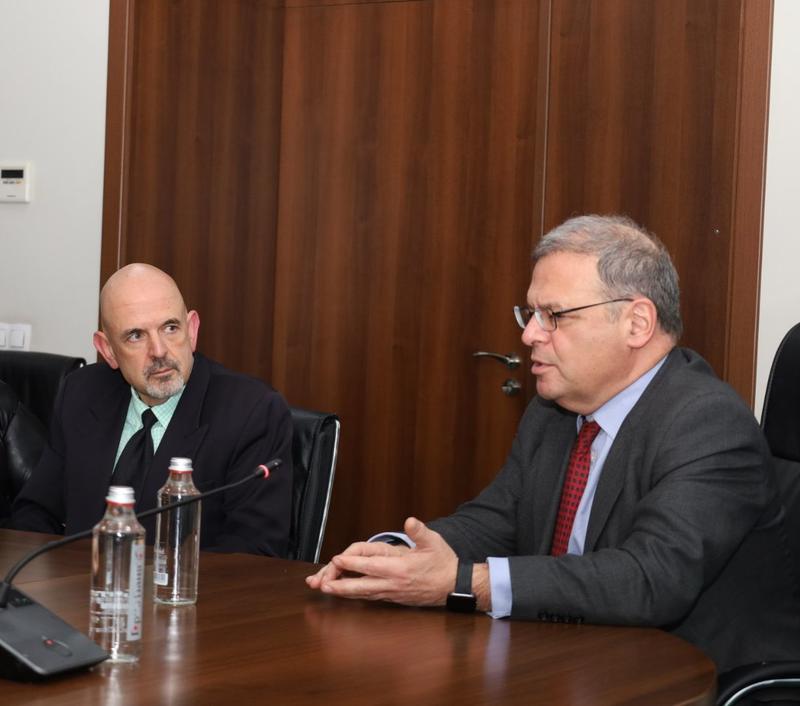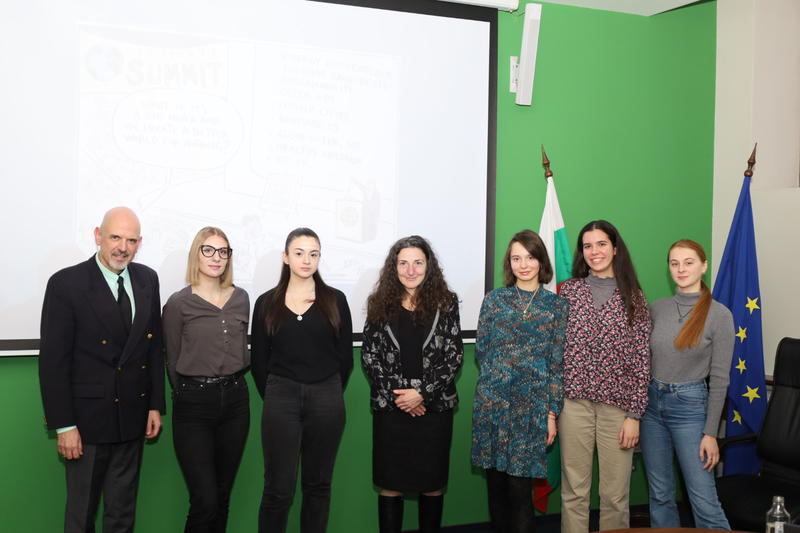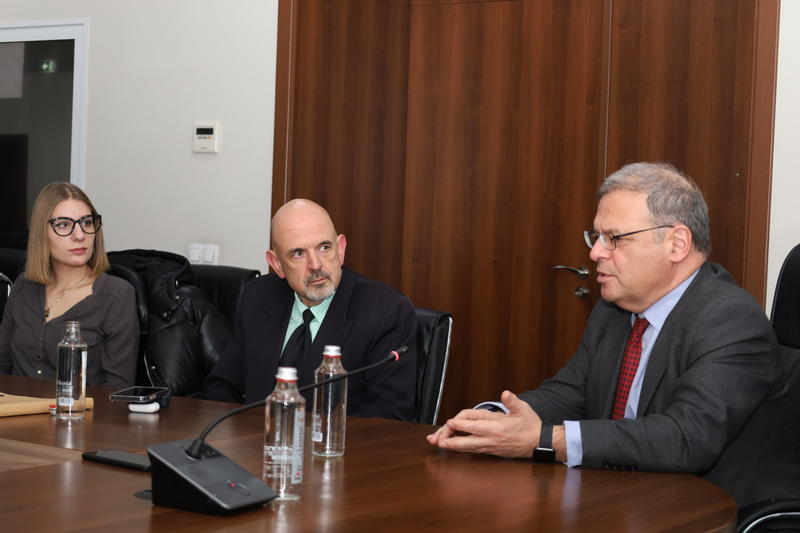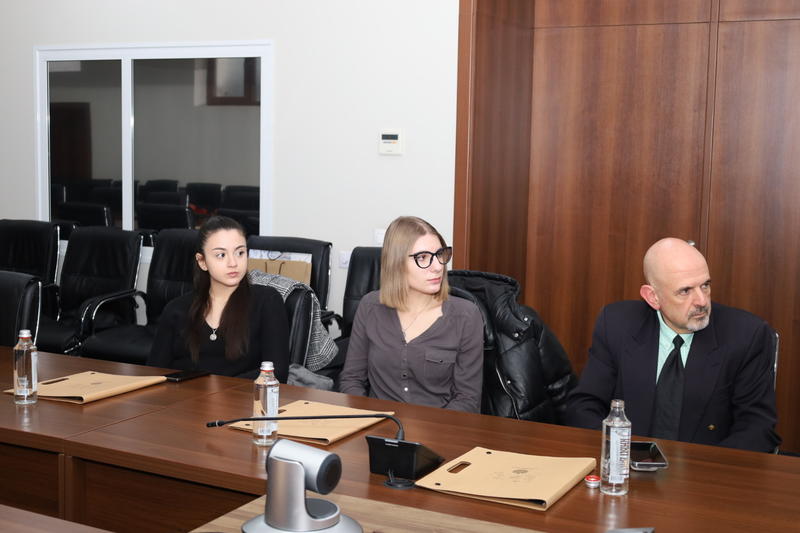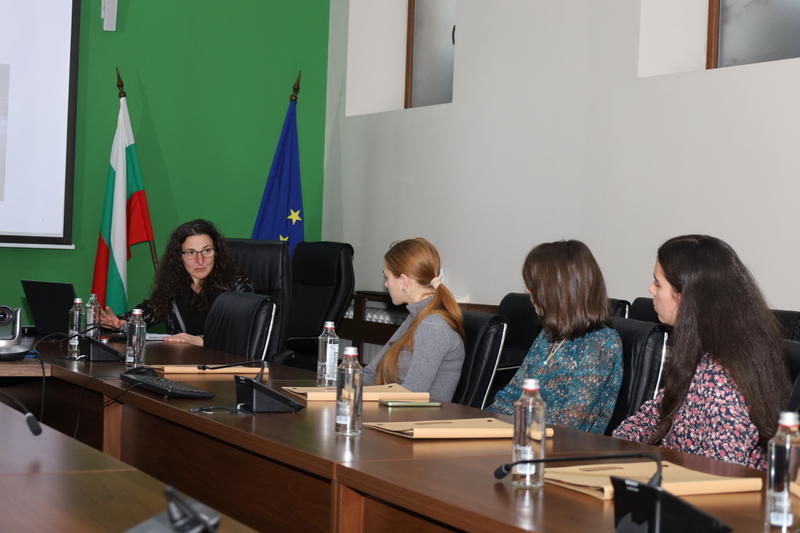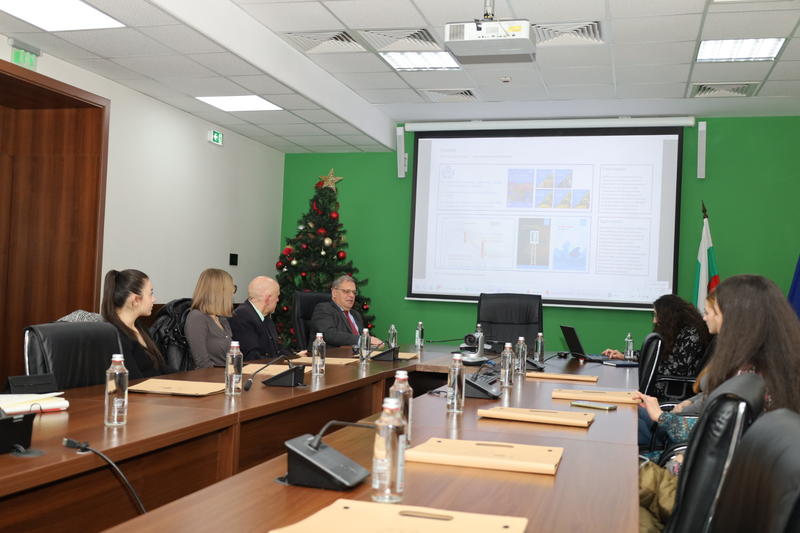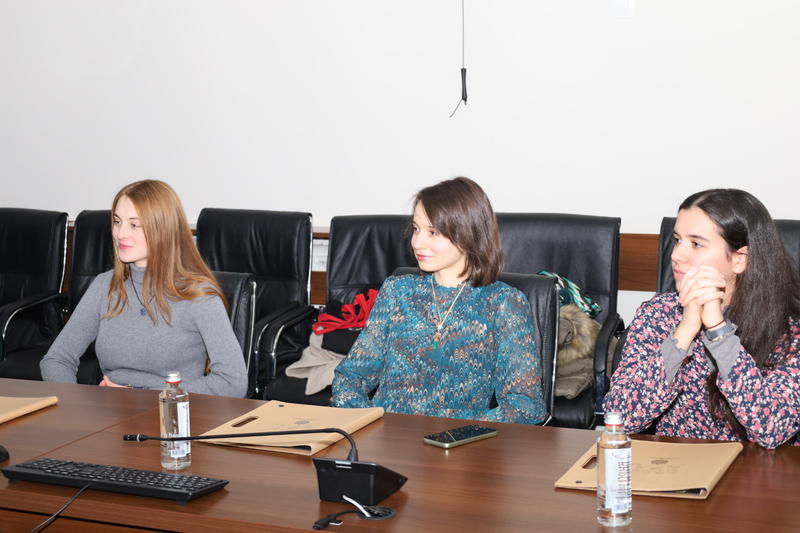Minister Julian Popov presented the climate policy in from of Sofia University students
17 Jan, 2024 | 18:03
The Minister of Environment and Water Julian Popov presented the main dimensions of the climate policy to students from Sofia University, who are in the first-year of the newly launched program “Climate Change and Management” at the Faculty of Geology and Geography. The meeting was attended by Assistant Professor Iliya Lingorski from the Department of Economics and Advisor to the Minister Milia Dimitrova, who presented the main messages of climate science and the future of integrated policies to achieve high climate ambitions.
In the present world, more than ever, climate risks and climate goals need to be taken into consideration in the planning and implementation of policies and projects in all areas of economic and social life, shared in conviction Minister Julian Popov. "There is no doubt that climate policy is becoming a fundamental dimension of economic policy, affecting sectors, such as agriculture, energy, transport, it is linked to migration processes, access to water, defence and national security, and is practically drawing the attention of all institutions in the country. This is not a policy that is confined to one ministry," explained Juliyan Popov.
"The first priority for the MOEW is to make climate a broad national policy so that we can tackle climate challenges," stated the minister in response to the interest by young people in the environmental management priorities that he and his team have set. The other priority activities that the ministry is working on are directly related to this, he said - forums with industry, conservation of natural resources, regulatory changes to odour regulations, landscape regulations, our membership of the Organisation for Economic Cooperation and Development (OECD), Bulgaria's role as a co-leader of Ukraine's environmental recovery.
With great interest the students heard about Minister Popov's account of his participation at the informal Council of Environment Ministers in Brussels, where he presented the specificities of the Black Sea as the largest dead body of water and the role of its cold interlayer that traps hydrogen sulphide in the deep sea. The informal council discussed the possibility of including an analyses related to this in the risk assessment report currently being prepared by the European Environment Agency.
During the discussion, the young people also raised the question of how prepared Bulgaria is with ground and aerial firefighting equipment and how coping with forest fires as one of the most severe consequences of climate change can be improved. Minister Popov shared his idea for establishing a regional disaster response centre with the participation of our neighbouring Balkan countries, which is to be discussed as a proposal at the government level.
